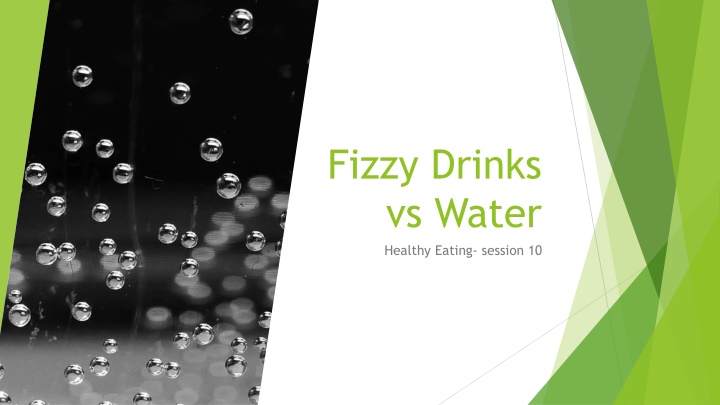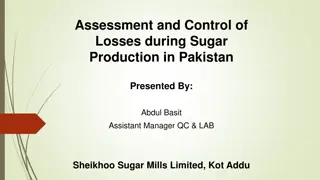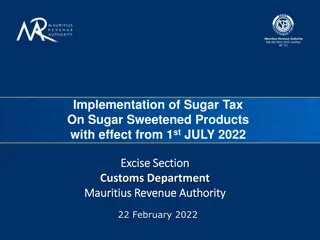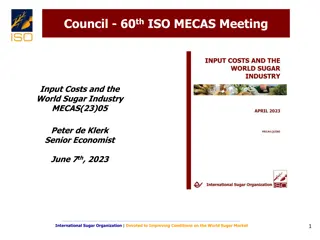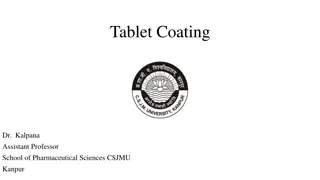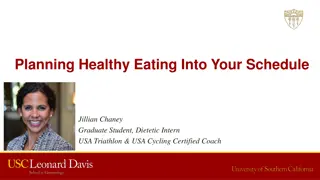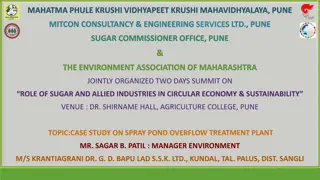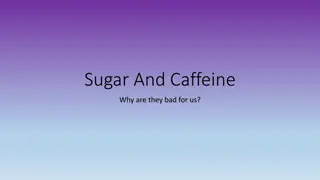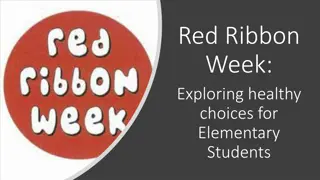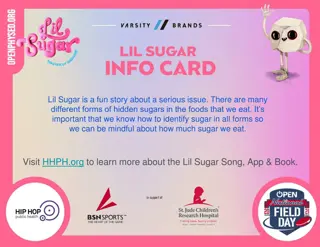Healthy Beverage Choices and Sugar Content
This educational session delves into the health implications of fizzy drinks versus water, highlighting the sugar content in popular beverages like Lucozade and Mountain Dew. Participants engage in activities to understand recommended sugar intake, analyze labels for hidden sugars, and categorize drinks using traffic light labels for better decision-making. The emphasis is on making informed choices for a balanced and healthy lifestyle.
Download Presentation

Please find below an Image/Link to download the presentation.
The content on the website is provided AS IS for your information and personal use only. It may not be sold, licensed, or shared on other websites without obtaining consent from the author.If you encounter any issues during the download, it is possible that the publisher has removed the file from their server.
You are allowed to download the files provided on this website for personal or commercial use, subject to the condition that they are used lawfully. All files are the property of their respective owners.
The content on the website is provided AS IS for your information and personal use only. It may not be sold, licensed, or shared on other websites without obtaining consent from the author.
E N D
Presentation Transcript
Fizzy Drinks vs Water Healthy Eating- session 10
Introduction Establishing context What are your favourite beverages to drink? Which ones are healthy? Why? How many sugary drinks have you drank today?
Lucozade original has 11.2g per 100 of sugar- each bottle will contain 56g of sugar per bottle which is 14 sugar cubes per bottle. Mountain Dew has 12.3g of sugar pre 100ml each bottle typically contains 500ml = 61.5g of sugar in each bottle which is 15.4 cubes of sugar per bottle.
Recommended intake for young people aged 10 is 24g Aged 11 - adults is 30g. Recommended guidelines One of these drinks per day is almost double your recommended intake. Have you had days where you have drank more than 2 of these?
Both healthy? If so, why? If not, why? Water has 0 sugar Apple juice has 9.5g per 100ml.
Working as a team, using the sugar cubes in front of you, place the amount of sugar you think is in each bottle of juice. Explain why you have chosen to put that amount in. Activity Revisit the choices that participants put on the board and ask would they still consume the same amount knowing about sugar levels?
Reading the label When buying a fizzy drink, always read the back of the label; There is a box called Nutrition Information Typical Values Have a look at the section reading Carbohydrate: of which sugars . In this tin of Monster energy drink there are 55grams of sugar. The NHS advises that Adults should have no more than 30g of free sugars a day, (roughly equivalent to 7 sugar cubes). Children aged 7 to 10 should have no more than 24g of free sugars a day (6 sugar cubes).
Traffic Lights Using the bottles in front of you, label them Green if you can drink them all the time Amber if you can drink them sometimes throughout the week. Red if you should not be drinking them at all
Without water, your body cannot function correctly. Going without water for even short periods of time can cause dehydration. Children should be drinking about six to eight glasses of fluid a day to avoid dehydration. Adults need to drink a bit more. Why drinking water is important However, if you participate in sport or go outside during warm weather, you may need to drink more than this as you lose fluid faster through increased sweating. How much water have you drank today? What stops you drinking enough?
Benefits of drinking water Flushes bacteria from your bladder Normalises blood pressure Aids digestion Protects and helps vital organs to function Helps muscle and joint function Regulates body temperate.
Activity Activity In groups, fill a pint glass with water to demonstrate how much water should be drank each day and see what group can get closest to the recommended intake. In the same groups, discuss how the group can drink more water each day and keep track of this. Use slides 16-18 to help you).
How to know if you are dehydrated Babies, toddlers and children are most at risk of dehydration. You may be dehydrated if you have any of the following symptoms: Thirst is an early sign and your body s signal that you should drink something! Headaches Lack of concentration Dry mouth Constipation Tiredness Dark-coloured urine
Ways to prevent dehydration Bring a water bottle to school. If it's a warm day, try a frozen water bottle. Always drink before, during and after physical activity. Drink during meals and with your snack. Try adding fresh fruit to your water. Experiment with the temperature; some people like iced cold water and some prefer it warmer. Water is best but milk and juice also keep you hydrated. Just watch out for added sugar! What other tips can you think of?
